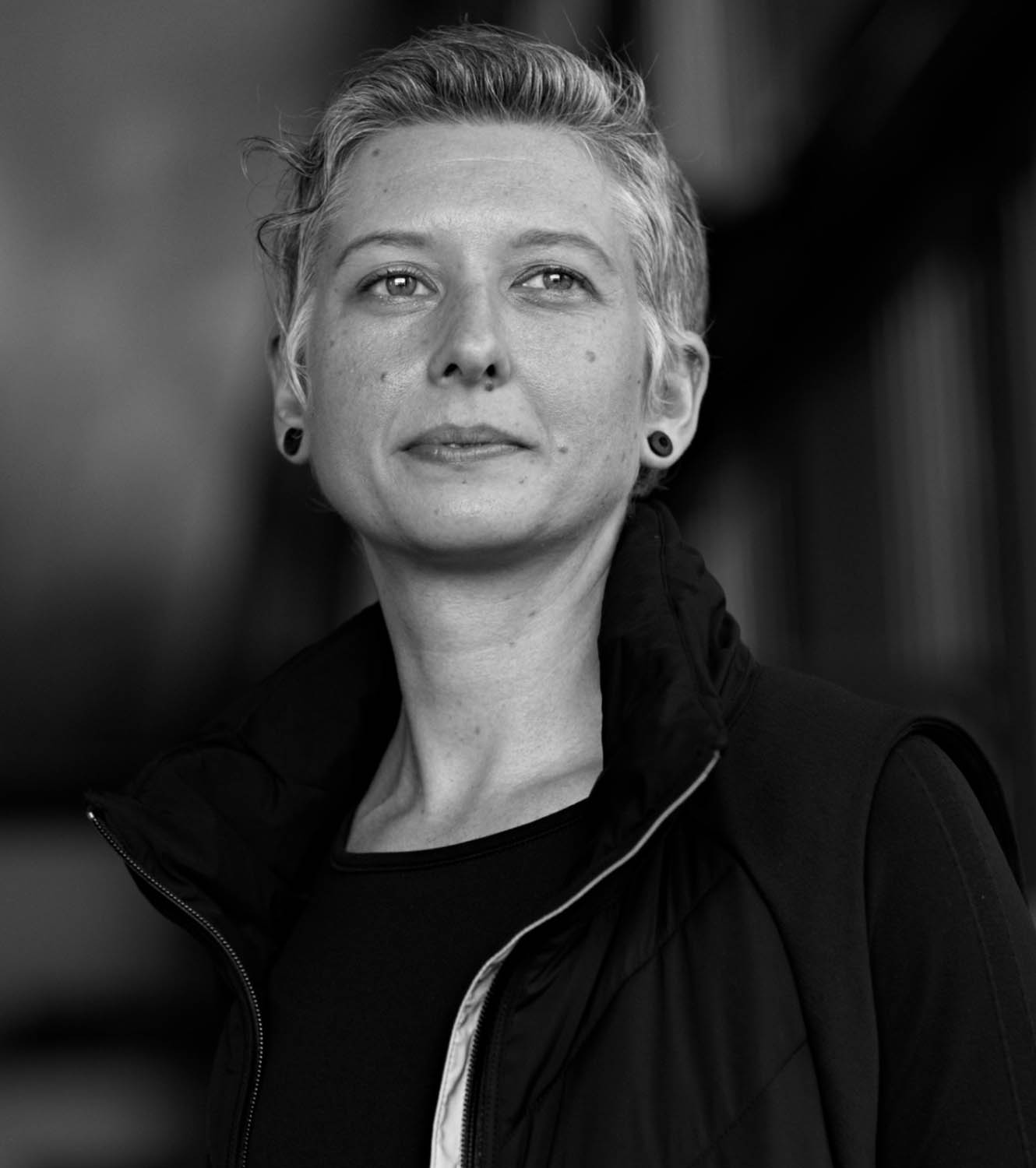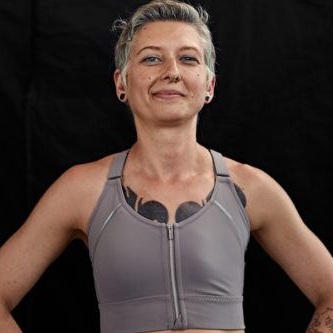ATHLETE PROFILE: JEANNINE LOVE
Musician. Professor. Widow. Author. Activist. Rower. Breast cancer patient. Jeannine Love’s identity is intrinsically tied to many roles and experiences, but it seems none can singularly define her.
A self-proclaimed shy musician, she chose at a young age to set aside her plans for a music degree to instead pursue a Ph.D. in Public Policy and Public Administration; today she is a tenured professor at Roosevelt University who must overcome nervousness before every class, but she does so for the euphoria of engaging students who wish to truly change the world.
To any outsider, hers is an accomplished life. But Jeannine’s achievements have been earned, and her identity shaped, along a winding road of devastating events, including the loss of her partner, Aric, who she was with for almost 16 years, and a Stage 1A breast cancer diagnosis, which she received in September 2016. Though either of these experiences could have been paralyzing, for Jeannine they have served as a unique opportunity to learn and grow.
“For both widowhood and cancer, one of the things that’s been really striking to me is how much I’ve learned going through both of these processes. I’ve learned a lot about dealing with crisis. I’ve learned a lot about connecting with other people, developing empathy, developing patience, learning to really draw from and honestly express gratitude in spaces where it feels like you shouldn’t have any gratitude.”
This focus on gratitude has helped her more fully appreciate life. “People tend to be so future driven. ‘I have to get this goal,’ ‘I have to get this goal.’ You forget what’s happening right now. [I’ve learned to] just slow down and re-prioritize, connect with friends and people that I love, do things that I love.”
Two things she loves and has leaned on heavily? Music and exercise.
“I went without playing music for a while until my late partner surprised me with a banjo, because he knew I’d always liked the instrument and wanted to play.” Life initially got in the way of her playing the banjo regularly but before long, and partly in response to her partner’s playful nagging, she prioritized playing. “Right before [Aric] died, I was just like, ‘You know what? I’m going to promise you this—I’m going to learn to play that damn thing.’ So a few months after he died, I started taking classes, and I’ve been playing it since. It actually ended up being a really great thing, both for healing from—getting through his death, it was good grief therapy—and it was also really good healing therapy for after breast cancer.”
Jeannine describes music as a sort of meditation, one that lets her use her brain in a completely different way, and from this idea she transitions naturally to talk of exercise, which she describes in a similar fashion. Shortly after Aric’s passing, she took the lead of several friends who were runners, despite having always hated running, and found a new catharsis.
“Your brain goes into a different space, you’re concentrating on your body and…that effort, and you can sort of unplug from the overwhelming of your grief or diagnosis or whatever. That’s part of why I gravitated to ROW when I found out about it.”
And how she found out about ROW was a beautiful coincidence. After the loss of her partner, Jeannine sought a local community of women who could understand her loss and struggle to move beyond it. Her search led her to the Chicagoland Young Widowed Connection, where she made a fast friend
in Diana. Both women had lost their partners to liver disease and found comfort not only in the Young Widowed Connection but also in exercise, and it would eventually be Diana who told Jeannine about ROW.
“She came over after my mastectomy, just to visit and cheer me on. While she was there, she was like, ‘Oh hey, by the way, my really good friend, Jenn, has this group called Recovery On Water and it’s for breast cancer survivors, and it’s a rowing team, and I totally think you’d dig it.’”
Dig it she did. After visiting a ROWpen house, Jeannine was instantly drawn to the community of breast cancer patients and survivors who respected where she was at in her own recovery and overwhelmed her with camaraderie and laughter. She joined the team in March 2017, just six months after having received her diagnosis and less than four months after her mastectomy. Within another four months she was participating in the team’s milestone Athleta shoot.
“That Athleta shoot, actually, was a really wonderful gift to me because I spent 12 hours two days in a row getting to know some of my teammates…in a way that would have taken a really long time just coming to practice a couple times a week. And just the idea that [ROW] would even consider giving my name [for the shoot] when I was so new was really cool. It says something about ROW that, when you walk through that door, you’re a member. You don’t have to earn your cred [or] prove yourself. It’s like, no, you are part of our community.”
For a woman who has maintained her inner strength and resolve through so much, it seems natural that Jeannine would gravitate toward the physical demands and generous community of ROW. And in this context, with striking resilience, she quickly dismisses the possibility of letting herself be paralyzed by grief. “Life gave us what life gave us and we can be pissed off about it and make ourselves miserable or we can do the best we can and try to enjoy our time together. That is something that’s special—to be able to maintain that positivity through all of this and not to just shut down, but to keep pushing through and not letting everything interrupt my ability or my desire to meet these other personal goals.
“I think in our culture we’re not good at talking about things like death [or] chronic illness. There’s this notion that recovery somehow means healing it and making it go away; like you can somehow go back to the person that you were before death, before diagnosis. And that’s not possible. Grief and death [are] with you forever. That doesn’t mean that you are stuck in a state of crisis or overwhelming grief or that you are immobilized. It just means that is always now part of your being and your identity.”
Reflecting on all she has learned thus far, Jeannine notes that new things are scary. With rowing in particular, she feared the idea of pulling together with her teammates, worrying that she would disrupt the boat. And as it so often is in life, mom was the reassuring voice that encouraged Jeannine to row on.
“My mom was great. I was talking to her about that fear [of rowing], and she was like, ‘Think about it like playing music. When you play music, you have to be in sync with everybody else…you know someone is conducting and you are following that rhythm. Right? When you’re in the boat, somebody is setting the stroke, and everybody else is following that rhythm.’ I was like, ‘I can do that.’”
This profile was first published in the 2017 Recovery on Water annual report.


